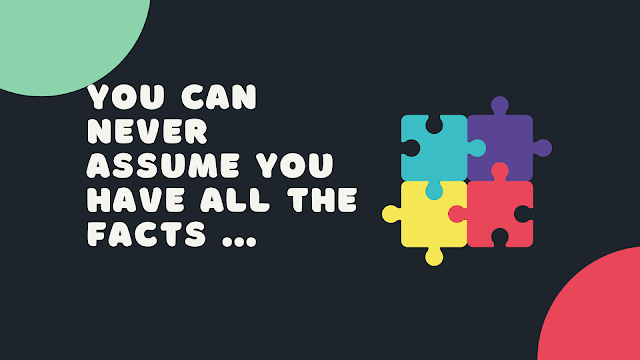I've been ruminating on an incident that happened some years ago, in 2013. If you aren't familiar with this news story, read the following:
Mormon bishop disguises himself as homeless man to teach congregation about compassion
I found the article fascinating and started thinking about it and what it taught.
However, I didn't stop there. When I was about 14 and read several newspapers a day, I happened onto something that made a big impression on how I accessed and read the news. Let me relate that story and then I'll return to my narrative.
If you know anything about journalism, you probably know that they try and include the major facts in the first paragraph. They continue covering the major facts and then get down to the minor facts and so on.
You never know when they are going to trim your article so you make certain you report the most important stuff first. Obviously, this is more important to print media than digital but everything can get edited and trimmed down.
Well, I read an article in one major city paper and thought, "The dirty rotten @#%$#@!" I was really inflamed. Then, when I read the next major city paper I happened onto the same article I had just read, verbatim. However, it had at least one additional paragraph that the other one didn't have. I remember thinking, "Oh, okay, that explains things. There is nothing wrong with what they did."
Just a few additional facts made a big difference in how the issue could be evaluated by readers.
I taught my students to, "Manipulate the media as much as it manipulates you." I encouraged them to read widely and read about the same issue in different publications to see what insight that could add.
Fast forward to 2013 and the story of the bishop masquerading as a homeless man.
I not only read the Deseret News article, but I also read the same story in a variety of different publications.
When I do this, I usually get the same facts. Often, there isn't much more to add and I stop.
This story was different. Every coverage of this story had something different, a new fact the others didn't have.
Each additional fact dramatically altered my view on what happened, why, and what I should conclude about it.
Intrigued, I started searching for this story in every publication I could find and read them all. Soon, I had a plethora of additional facts that really put an interesting spin on things.
Soon, this story got discussed on a *blogger listserv I belong to. They were all arguing and evaluating their own and each other's point of view. I stayed silent but continued to read their energetic discussion.
They did not have all the facts, but it didn't stop all the analysis, evaluating, and judging.
I knew extra details from my research that could have blown holes in what they were asserting. Finally, they went onto other issues.
I was left reflecting how misguided most of what they said was because no one seemed to know as many of the facts as I had uncovered.
I've never forgotten this.
This sort of scenario has played out so many times in the past, especially when I taught government. You can make someone's opinion swing wildly around just by giving them one crucial fact at a time.
Now, I never assume I have all the facts. I know something may be out there that could radically change my views. It's unsettling to think this could apply to anything but my experience tells me it does.
*The blogger listserv is composed of highly educated Latter-day Saint members.
Continue reading at the original source →




